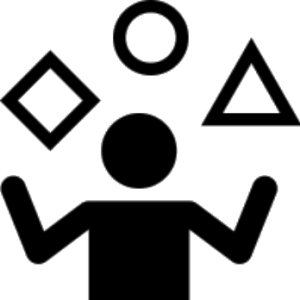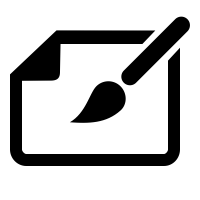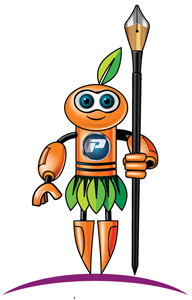14 Sep Leader’s Interview
Interview with Leaders
About Aditi Kashikar
Aditi Kashikar has over 15 years of experience in the Technical Communications field. She completed her post-graduate in Mass Communications from the Indian Institute of Mass Communications in New Delhi. She has worked in the Enterprise Content Management and Records Management domain, networking software domain, and is now in the Robotic Process Automation (RPA) domain. She heads the Product Documentation team at Automation Anywhere, with team members spread across US and India. She is passionate about enabling customer experience and the role content plays in it. She is equally passionate about growing and developing people and setting them up for success in their careers.
Outside of work, Aditi enjoys travelling, hiking, indulging in adventure sports, reading, and watching documentaries (on geopolitics) and movies..
Follow her on LinkedIn.


What are the ideal Top 5 assets that a Technical Writer needs to Master or be a Jack of all Trades, irrespective of whether it’s a technical or soft skill?
I think it’s important for a technical writer to be:
- Empathetic: To understand and think from the target user’s perspective and be able to identify the goals they are trying to achieve using the product/service you provide content for. It is important to understand your user’s context, the environment they operate in, so that you can map out their mental model and deliver targeted and relevant content to them as and when needed in their context.
- Inquisitive: Have an innate or cultivated curiosity towards how things work, why they work the way they do, understand the what and why of things, and challenge or question the status quo to constantly improve and innovate content, processes, and tools.
- Service-oriented: Be driven by a higher sense of purpose to reduce the knowledge gap for users and customers and enable them to self-support when interacting with the product or service. Users can be both internal users (such as Support engineers or Sales/Implementation engineers) and external users in the customer organizations.
- Strong in project management: With the proliferation of Agile development environments, a technical writer will typically contribute to multiple projects simultaneously. The ability to plan and manage one’s time across multiple, and sometimes, conflicting priorities will require the writer to apply project management techniques to stay efficient and grow in their career.
- Strong written and verbal communication:
- Writers have to assimilate or harvest relevant information from vast amounts of technical information and simplify complex information to build clear, concise, and usable information.
- Writers have to collaborate better with SMEs in order to gather pertinent information by asking the right questions, summarizing their understanding of the subject matter, and sharing their knowledge with team members and the external larger community.

With Agile and CI/CD processes being adopted in several organizations to keep TWs engaged, what could be the next big game-changer that could transform documentation processes?
With the increasing adoption of Agile methodologies and CI/CD-based software development and delivery, on-demand availability of content will be needed to support and promote product adoption. In my team, we have implemented a CI/CD-based doc tools infrastructure that enables us to push content from source to our internal staging environment every 90 minutes through automated builds. This helps us reduce the turnaround time in reviewing content by internal stakeholders (SMEs and editors). Our process to publish approved staging content to production on our documentation portal is a manual process to ensure content integrity and readiness and is done on-demand. This helps us ensure that the content on our documentation portal is accurate and relevant and reduces documentation bugs.
Customer Feedback mechanism on Product Documentation is routed mostly via Customer Support teams. Should Technical Writers have direct access to customers to enhance documentation?
Our documentation feedback mechanism routes customer feedback directly to us in the Documentation team. Our documentation pages have a widget for customers to rate the content provided, share their feedback, and ask queries that we can direct to the relevant internal groups. The feedback mechanism is available only to registered customers who are logged in to our documentation portal so that we can interact with them when needed. While we continue to receive customer feedback from our Support team, we have seen a massive reduction in Support cases/queries raised by customers for documentation, and a significant reduction in documentation feedback tickets filed.
Automation is a constant threat reducing several manual jobs across industries. Will Technical Writing be able to compete or lose importance by the next decade?
I look at automation to reduce manual and repetitive tasks so that humans can spend more time to ideate and innovate. I believe that user assistance (not just technical documentation) will continue to stay relevant irrespective of the adoption of automation because users will always need information to help them use technology to achieve their goals. It is important for technical writers to evolve their skills to support the development and delivery of user assistance content whenever and wherever users need it. Therefore, it is important for them to understand their user’s context so that user assistance can be tailored and delivered in relevant formats based on the context.

What are the Top Technical Writing or Content Innovations that you would like to see in this field by the end of this year?
I would call them content improvements:
- Workflow (sequence of tasks to achieve a goal) oriented content architecture and deliverables to support complex processes. For example, “metro maps” developed in Automation Anywhere.
- Development of omnichannel (technical documentation, training, support) content experiences for a customer’s journey with the products and solutions.

What is the greatest achievement or knowledge that you wish to share from your TW experience that the rest of the community can benefit from?
As a technical writer, I was passionate about enabling the user. This resulted in delivering useful content experiences and saw me working with cross-functional peers in marketing, development, testing, user experience, support, and training to improve the overall product experience. If you want to grow and add value to your organization, it is important to go above and beyond consistently, and never stop learning.
As a people leader, I am passionate about growing and enabling my team members and setting them up for success. This requires having conversations on their strengths, areas for improvement, interests, and aspirations so that they are continuously given opportunities to learn, stay motivated, be challenged, and grow.
As a functional leader, I am passionate about constantly innovating and improving content, tools, and processes so that superior content experiences lead to increased customer adoption of our products, solutions, and technology.
What would you have been if not a Technical Writer?
I would have been in project/program management. I like to plan, be organized, stay on top of multiple, competing priorities, and drive for results and outcomes. I enjoyed working towards and achieving the Project Management Professional (PMP) certification because it institutionalized a lot of my innate skills and I find myself leveraging these skills as a technical documentation leader.
In your TW hiring experience, where do you think job applicants are going wrong and need to differentiate themselves in their resumes or interview stage?
A lot of job applicants tend to focus on their knowledge of and experience with technical documentation tools and systems. I do not hire for an applicant’s tooling experience as I believe that most technical writers and aspiring ones innately learn new technologies and systems. So, I am confident they will pick up the tools unique to each organization, much like the products and solutions they will need to develop documentation for. Instead, I would recommend job applicants to develop portfolios of their written content, especially conceptual (what and why) content that demonstrates their ability to fully understand a complex idea and translate it into a clear and concise piece.
TWs can adapt to various industry domains but is it important for them to stick to one domain from a long-term career standpoint?
Technical writers who want to stick to an individual contributor path and grow to a Principal Technical Writer level without wanting to move into people leadership and management might benefit from a deep expertise of a particular domain and technology. They can then focus more on adding value in content architecture, content strategy, and content development methodologies and processes that differ from organization to organization.
How critical is it for TWs to adapt and contribute to various Content roles in an organisation?
With the strategic need for omnichannel (marketing, technical documentation, training, support) content across touchpoints in a customer’s journey with a product or solution, it is important for technical writers to stay relevant by leveraging transferable skills and upskill themselves to contribute to such content development and delivery.
What would you advise the next generation of Technical Writers?
The same as my previous answers. Continuously adapt and upskill to add strategic value to your user/customer no matter where or how they interact with your content during their journey with your product and solution.
If you were not a human but a hardware or software application, which one would you like to be, and how would you like to be best documented?
In line with my innate project management skills, I would like to be a software such as Atlassian Jira, Asana, or Trello. And I would prefer to be documented through a combination of text- and visual-based embedded user assistance.
Do you see a scope for leading industry giants (Apple, IBM, Microsoft, Google, etc.) to join hands to create a Universal Documentation Style Guide that can be adopted across companies?

I would welcome such a collaborative initiative because that would help all organizations leverage an industry-standard style guide, while also ensuring consistent writing style and presentation for customers.
The TW job demand seems to have shifted dramatically to API and Cloud Documentation in the past 5 years. What should TWs do to excel in these fields? Please share your insights.
I would extend API documentation as demand for developer-oriented documentation, which includes SDKs. A developer documentation writer is expected to build tutorials, test, and provide code samples, and develop sample applications so that third-party developers can customize and extend your product and its platform. A successful developer documentation writer has to understand at least one common programming language and have experience in getting into the IDE (integrated development environment).
For Cloud documentation, writers will have to embrace a CI/CD-based, on-demand documentation and publishing model to keep pace with software releases.
Can Technical Writing be introduced as a vocational subject at the school level? If yes, what could be the benefits for students?
I was part of the Technical Writers of India (TWIN) Technical Communications Professional (TCP) training program and university outreach initiative to increase awareness of technical communications as a viable career option. Through that experience and from student feedback, I learned that a technical communications course as an elective would have been very useful.
I think it would be more prudent to introduce it at the under-graduate level as an elective in a communications-oriented program. This will give students the chance to use theoretical knowledge in real-world experiences through internships in technical documentation teams to get an in-depth view of what it takes to be a technical writer.




Capt. Vikram Menon
Posted at 11:35h, 16 SeptemberCongratulations Aditi! God bless you as you climb rapidly up the Corporate ladder. Shatter the glass ceiling!